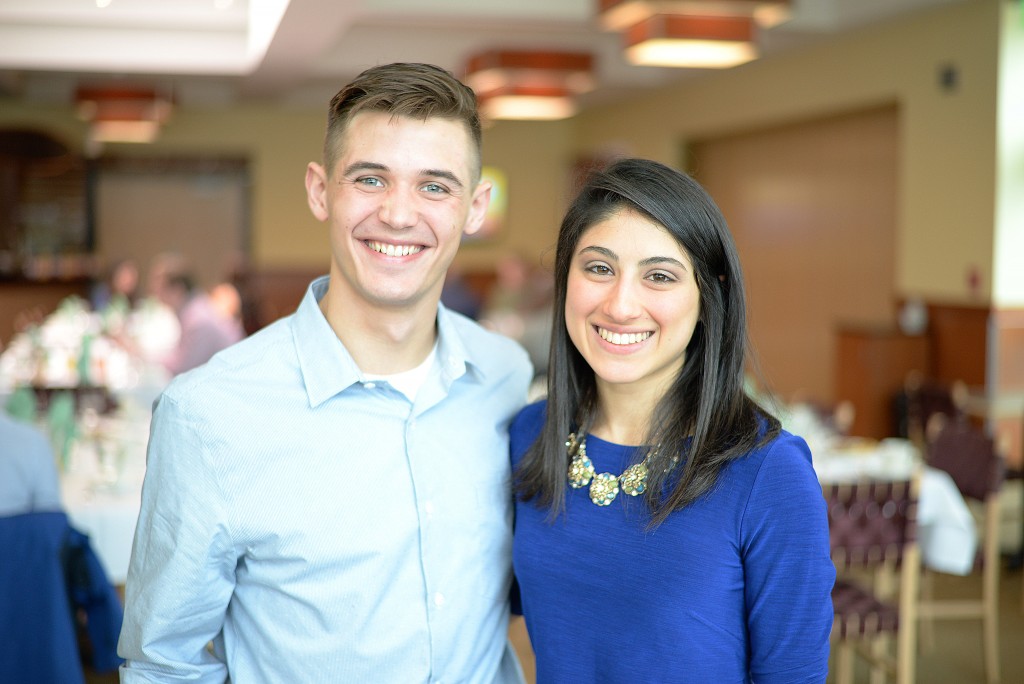
Pipe Dream sat down with Kyrin Pollock and Matthew Gill, BU sophomores, before their TEDx speech. This interview has been edited for length and clarity.
Pipe Dream: What is your TEDx talk about?
Kyrin Pollock: We’re going to be talking about virtual reality (VR). There are a lot of misconceptions about virtual reality, that it’s just like a video game or for playing games and cutting yourself off from actual reality and the world. So we just want to explain to people that it’s so much more than that, and it can be used in so many different ways — in education, medical applications, just a lot of uses for it beyond video games.
Matthew Gill: It’s like she said. There are a lot of misconceptions around it. We are from Enhanced VR — a startup we created last year with a couple other students — and our idea is to create peripherals, and other ways we can incorporate VR. We were very fortunate to get accepted to TEDx and be able to show that there is so much more. There’s research and education, but there’s also entertainment like the New York Times app, how you get your news, and even new films. If you look at the indie films festivals, the Sundance Film Festival, there are more VR films that are coming up there. It’s a growing field, market, industry, whatever you want to call it, and it’s expanding so fast. For people to not have the right idea of it when it gets started is essentially not good. If we can help present it in a better light, I’d say that’s what our goal is.
KP: It’s to get people excited about it.
PD: How are you challenging these misconceptions?
MG: With the talk, we just want to introduce the misconceptions. As we progressed, we explained that people don’t know what virtual reality is, the different ways you can access it and what exactly happens while you’re doing it. We transition in little steps from an education standpoint and what it can be used for and how it can help, and then [it] goes a great bit into emotional intelligence.
KP: [With] a video of a user using the simulator we actually made, and then at the end of the speech we’re going to have this mini virtual reality experience, so we’ll dim the lights and get the audience involved.
MP: We want to keep the audience engaged.
KP: As much as we can.
MP: We ask them, you can say, almost rhetorical questions during the beginning. The fact is we’re trying to immerse these people, and trying to get them into thinking as much as they can and connect them and force their imagination. At the end of the talk , we give them their own little virtual reality trip where we make our own version of the Paris attack video that you see on the New York Times. We took the same plotline and how they went about it, but we presented it in a way that can keep people engaged but not zone out like they’re just watching a video. It’s pictures, but we describe the audio. So if people are having issues imagining what’s going on, they can hear the sounds of traffic, they can hear the sound of people talking in the background. So it really kind of fills in the whole story. At the end we hope that people can really connect it, and they really come away with something memorable, and that again, VR is what it is. What we’re doing as a team with Enhanced VR, we already have a two degree of freedom simulator —
PD: What is that?
KP: So basically you can move backwards and forwards and side to side. So angles of movement.
MG: There’s many more, you can go up to six. But essentially what this one can do is, we have it set up for racing. We can put you on basically every track in the world in any car that you want and make it seem like you’re in the seat, feeling the forces. We have a vest that we made at a hardware hackathon, at the HackBU, so you can feel the vibrations in your chest too.
PD: Would you say you decided to talk at TEDx to expose VR more and get people excited about it?
MG: This talk is called “Flip the Script.” So we thought this would be a good way to make a flip on how people see VR, and we wanted to present it the different way that we can.


